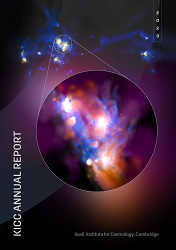
Submitted by Administrator on Fri, 27/09/2019 - 13:57
Scientists at the Kavli Institute, in collaboration with researchers at various institutes in Italy, have discovered that in the early Universe, at the time when the first stars and first galaxies formed, the first massive black holes became extremely greedy, by gobbling enormous amount of matter, and generated extremely powerful winds. These winds reached velocities in excess of 1,000 kilometres per second, and certainly affected the galaxies in which the black holes were hosted.
However, despite being so mighty, such winds were probably not capable of suppressing the birth of new stars in their host galaxies. These galaxies may therefore have survived these catastrophic events by continuing their evolution and forming new generations of stars.
The result was obtained by investigating the signal emitted by ionized carbon of 48 quasars, which are supermassive accreting black holes, observed at an epoch when the Universe was younger than one billion years (that is less than 7% of the Universe current age).
The data was collected by the Atacama Large Millimetre Array (ALMA) in Chile.
The project was led by Manuela Bischetti, former student at the Kavli Institute, and the results were published in this week’s issue of the journal Astronomy and Astrophysics: https://www.aanda.org/articles/aa/abs/2019/10/aa33557-18/aa33557-18.html




